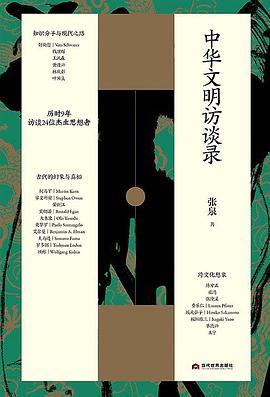WULOLIFE
《中华文明访谈录》作者: 张泉 出版社: 一頁丨当代世界出版社
《中华文明访谈录》作者: 张泉 出版社: 一頁丨当代世界出版社
Couldn't load pickup availability
Description
内容简介 · · · · · ·
三度“亚洲卓越新闻报道奖”得主张泉
历时9年,采访24位杰出思想者,勾勒中华文明嬗变的轨迹
许知远特别推荐
★一部别样的“文明史”
本书采访的学者,不同的领域,Chinese:
于是,我们从柯马丁那里得知秦始皇所谓的焚书坑儒原来并无事实根据,从宇文所安那里得知李白和杜甫居然是当时的非主流诗人,从巫鸿那里了解到纪念碑性并非西方的专利,也更能明白顾彬对中国当代文学的批评理路。
以,本书是一部别样的“文明史”,不仅改写了我们既有的认知甚至带有盗火的味道,
★一部动人的“情史”
他们都追溯到了一首诗:
顾彬是李白,柯马丁是北岛。希尼说一首诗无力阻止一辆坦克,但它可以让一个人成为汉学家。当然,大木康的一瞬间是因为冯梦龙笔下的卖油郎和名妓的爱情。
所以,本书可谓一部动人的“情史”,讲述了这些西方学者如何在年轻时,从世界各地,突然陷入对遥远中国的执迷,并从此以中国为志业。
★一部辛酸的“奋斗史”
他们都追溯到了两部书:
钱理群是《鲁迅全集》和《毛泽东选集》,巫鸿是《历代钟鼎彝器款识法帖》和《英汉词典》,张隆溪是希腊罗马文学选本和英国文学作品选段。纳博科夫说一个优秀的阅读者只能是重读者,而那是一个精神饥荒的年代,他们只能选择持续反刍,以拒绝成为失踪者。
所以,本书也可谓一部辛酸的“奋斗史”,讲述了中国有代表性的知识分子如何在年轻的时候,执着于文明的光亮,从进入历史盲肠的中国突围。
【内容简介】
宇文所安、柯马丁、夫马进、顾彬、钱理群、王汎森、舒衡哲、巫鸿、张隆溪、黄进兴……他们是我们这个时代杰出专注于不同的领域,拥有各自或曲折或传奇的人生,却与中国保持着隐秘的精神关联。
从中华帝国的开端,直至当代,希望透过他们的眼睛,寻找遗失的真相,重新发现中国的传承与转折、兴衰与浮沉。
全书分为三个部分。第一部分解读古代中国的真相,追随学者的脚步,走出历史的迷宫。第二部分集中于晚清民国知识分子的抉择与现代化的代价,曾经的阵痛也许至今仍在发作。第三部分更关注当下与未来,在这个全球化的时代,文化多元,理论多变,中国该如何自处,又该如何与世界相处。
作者简介 · · · · · ·
张泉
毕业于复旦大学中文系,业协会(SO PA)2008年、2010年、2013年“亚洲卓越新闻奖”获得者。主要作品有《敦煌:众人受到召唤》(合著)等,纪录片《辛亥》《五大道》《大上海》(总撰稿)等。
